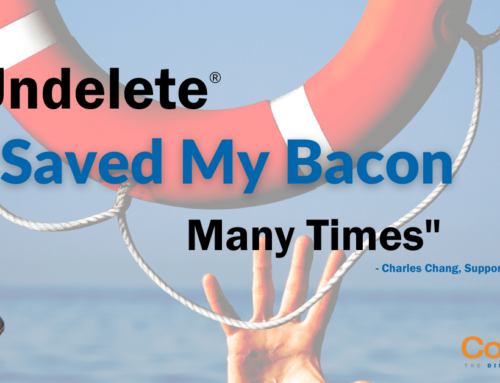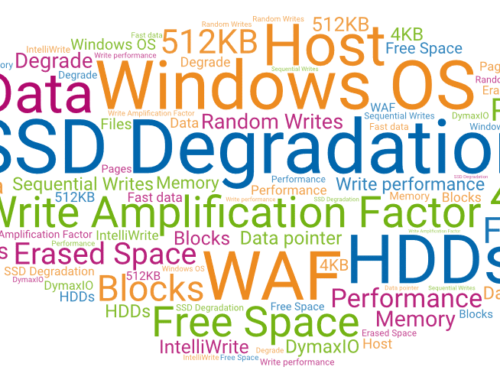Back in the 1990's, Diskeeper Corporation (a Microsoft Gold Partner) and Microsoft co-wrote Windows kernel-level code, and exposed an API (Application Programming Interfaces), prior to release of NT4 for third party software providers. This "MoveFile" API as it is called, has allowed defragmentation programs to operate as user-mode applications ever since, through Windows Server 2008, Windows 7, etc… (and yes, Diskeeper 2008 works on Windows 7). The benefit of having integrated defrag based file movement in Windows is that all file movement in an online defragmentation operation by a product such as Diskeeper, is entirely handled by the operating system. From this viewpoint a defragmenter is logic that instructs the file system, via that API, to put file fragments that it discovers back together again into an available and contiguous free space on a given Windows volume. The process has been 100% safe for data since introduction in NT4. More recently, the NTFS file system added and fully supports disk/file encryption as evidenced by EFS (Encrypting File System), and Microsoft products such as Windows Bit Locker. It is fairly well known that Windows also ships with a native defragmenter (a product initially provided by Diskeeper for the Windows 2000 platform). It then stands to reason that Microsoft has a vested interest in maintaining continuing compatibility with defragmentation and, minimally, their own drive/file encryption solutions, and this is certainly the case. Over the years our vast install base (10 million+) has brought to our attention rare and temporary incompatibilities that other products have had with the Microsoft MoveFile API. Disk Encryption is becoming and increasingly more popular security measure undertaken in corporate enterprise – and even home use. Limitations in Windows provided tools, often drives IT professionals to seek out advanced third party disk encryption solutions (much as they do with disk defragmentation). In past years, as this technology grew from infancy in the Windows arena, a few disk encryption applications had temporary issues with the MoveFile API. In every case to date, where it has ever even been an issue, the manufacturer of that Encryption software program has recognized this issue and corrected it, or offered workarounds. Those workarounds may require specific functionality in a third party defragmenter such as Diskeeper's File Exclusion feature, as the native defragmenter that ships with Windows lacks this. In those cases, depending on the technology implemented by the Encryption software vendor, a specific file (called a boot loader file) should not be moved. In fact, with Diskeeper's technology and market leadership, we have worked closely with engineers and support staff from Encryption manufactures to ensure their products work perfectly for our customers. For any current or future Diskeeper Corporation customers looking to employ a disk encryption program, we recommend checking the Encryption ISV's (Independent Software Vendors) Knowledge Base, Help files, or directly contacting the support staff to determine if any special measures are necessary. Based on our experience we also recommend choosing a mature and established vendor in this arena – sound advice for any company looking to deploy a large volume of licenses of any application. As always, you should make sure you are using the most recent version for any encryption solution, such as Guardian Edge EPHD 7.2, Utimaco (SafeGuard Easy) 4.20.x – 4.40.2 with their hotfix SGEflt.sys, or PointSec 6.3.1. In summary, there are no known issues with running both disk encryption software and disk defragmentation software. Combining Diskeeper and data encryption software with provide users with a secure and optimized computing experience.
Related Posts
One Comment
Leave A Comment Cancel reply
You must be logged in to post a comment.



Update Note: Diskeeper 2008 support for Windows 7 (back in early 2008) was confirmed by Microsoft and some OEM partners who had access to very early Windows 7 builds (we did not). The Windows 7 RC/RTM builds available in summer of 2009 are not support by v2008. Diskeeper 2009 and future versions do support Windows 7 RC and released versions.